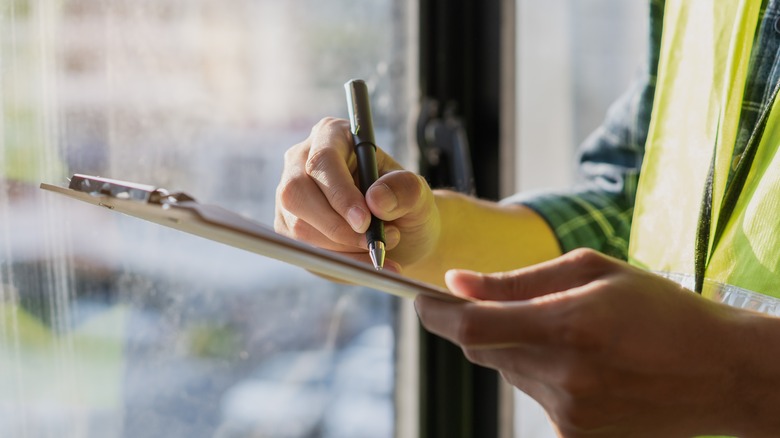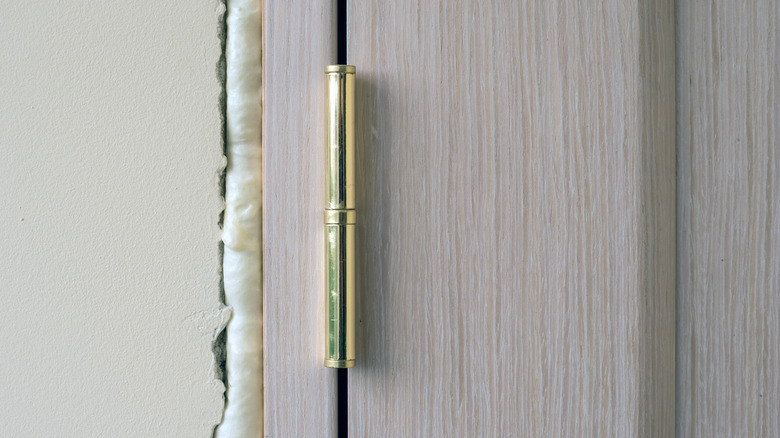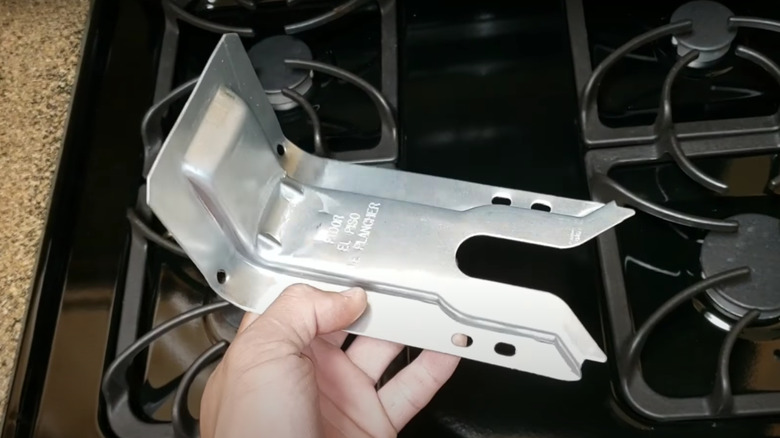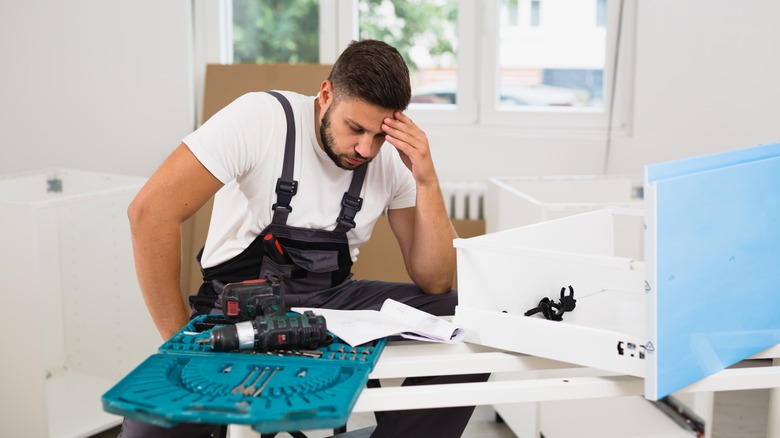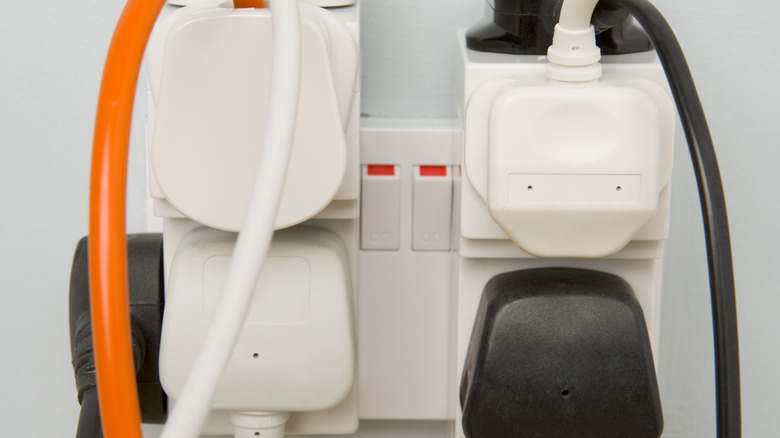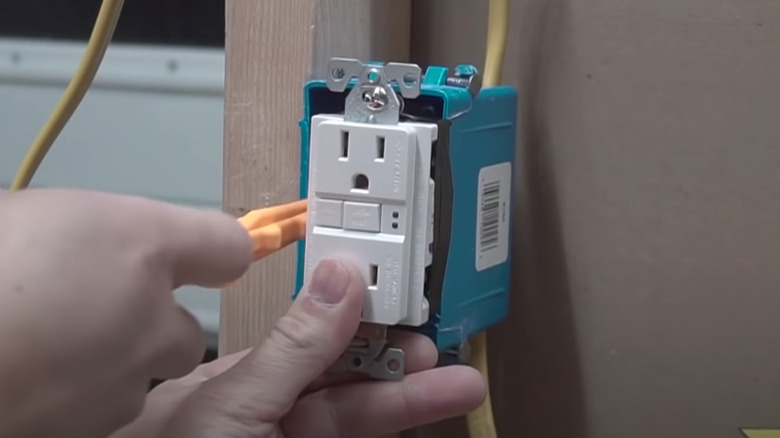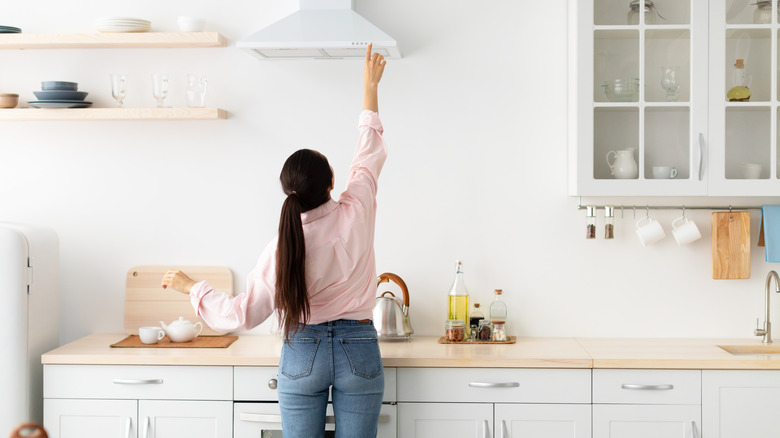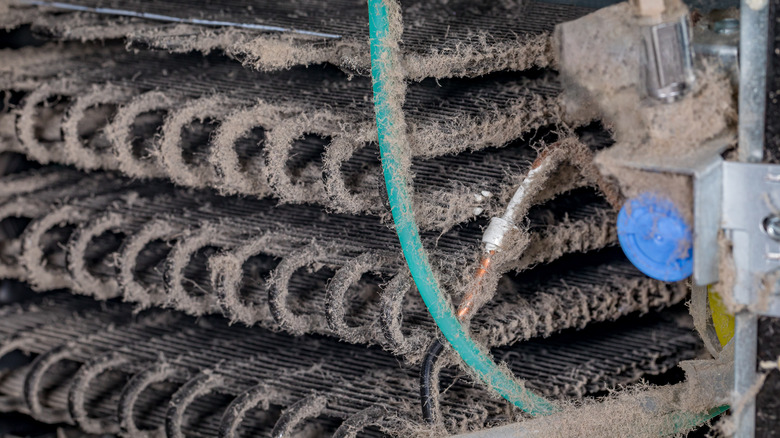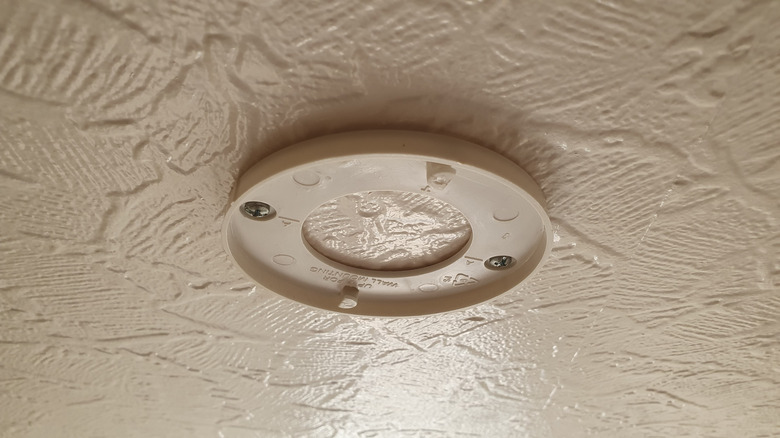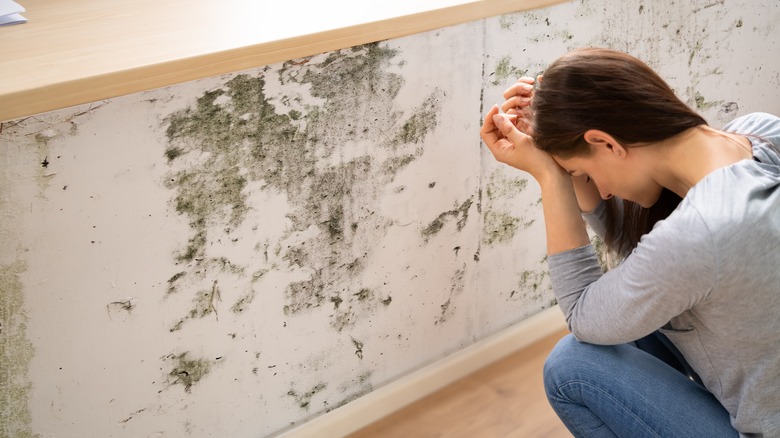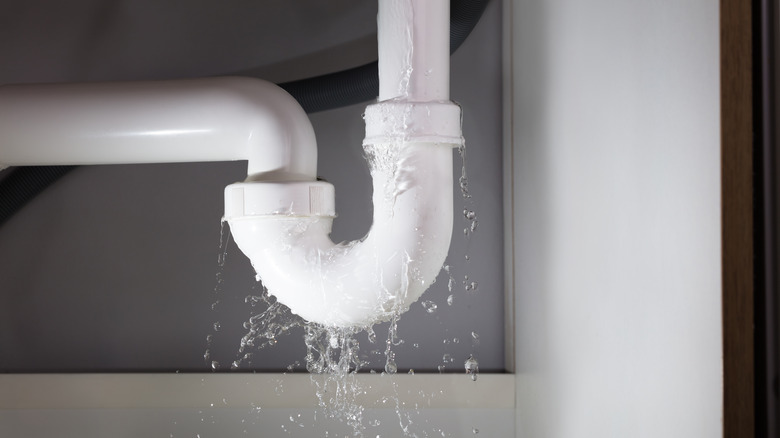10 Things In Your Kitchen That Drive Home Inspectors Crazy
A proper home inspection can be beneficial if you're selling your home or looking to purchase a property of your own. A qualified home inspector will thoroughly look at the home's structure and everything in between to ensure that the property is running smoothly without any worrisome issues. Having this procedure done can be the ideal way for a new homeowner to know what to look out for when it comes to structural integrity and all the safety measures that need to be met when maintaining a residence.
A home inspection can be requested after you have made the first offer on a property but before you have fully agreed on the final sale price. That way if there are any major problems that are discovered by the inspector, you can either ask the seller to make the changes before you agree to buy or have the listing price lowered so that you can take on the work yourself, explains Great Colorado Homes. This could save you plenty of headaches and expenses if you were to discover these issues on your own.
There are many things that people neglect when taking care of a home — especially in the kitchen, where there are elements of electrical, plumbing, as well as major appliances which need to adhere to strict safety measures. Here are some common issues in the kitchen that may have home inspectors pulling out their hair.
Unsealed cracks or spaces
Gaps and spaces around the kitchen can be a sure way to invite pests into your kitchen — especially in an area of the home where food is prepared and may find its way into these crevices. Properly sealing openings between countertops or gaps around pipes, will ensure that food or liquids don't get stuck in spots that could encourage mold growth.
In addition, pests like mice, ants, and cockroaches can easily squeeze through tiny areas, a tight seal will also discourage them from entering your kitchen.
No anti-tip brackets
Home inspectors are responsible for making sure that a residence meets the proper safety standards. That way you can be sure that you and your family are safe and sound. One of these measures in the kitchen is related to your stove.
An anti-tip bracket may not seem like a necessity, but it's definitely something an inspector will insist you have. It anchors your stove to the ground or wall so that it won't fall forward when you open the oven door — this is especially important if you have children around the home.
Drawers or cabinets that don't fully open
There's nothing more frustrating than finishing a kitchen renovation only to find out that certain measurements don't line up. Especially when you're dealing with drawers and cabinets that meet in corners, the last thing you want is to find out you can't open them all the way, or if they slam into the surrounding cabinetry damaging the surface.
Although it's optional for home inspectors to check — as per Properly Inspected — they may shake their heads if they test the cabinets in your kitchen and find they don't open and close with ease.
Not enough outlets
Did you know that your kitchen is actually required to have a certain amount of electrical outlets depending on the size of the space? Well, a home inspector knows and will be sure to tell you whether or not the area is supplied with enough power.
With the popularity of kitchen islands and prep surfaces, some remodelers may have neglected to put in the proper number of outlets. According to the National Fire Protection Association, you need one plug within the first 9 square feet, then additional outlets for every 18 square feet afterward.
Any missing GFCI protectors
Further to the number of electrical outlets you have in your kitchen, a home inspector will be making certain that these outlets are equipped with ground fault circuit interrupters — or GFCIs. These are usually found on outlets that are near sources of water like the kitchen sink and can cut the power in an instant if there is a surge of electricity, according to Safe Electricity.
This safety measure can stop the path of electricity from attempting to ground through your body and instead reroute it and save you from any possible harmful electrocution.
Kitchen range vent not working
If you are an avid chef at home and enjoy making new creations in the kitchen then you may want to make sure that your range hood is working smoothly. A range hood is an important addition to most stovetops and works to suck the grease, smoke, and other odors that occur while you cook.
A home inspector will tell you that this can help to improve the air quality of your home by sending these impurities down ventilation ductwork and out of your home or by passing them through an air filter to recirculate.
Poorly installed or maintained appliances
To ensure that your kitchen is in safe working condition, a home inspector will check your appliances to make sure that they have been maintained and installed properly. This means no frayed electrical cords, anti-tip brackets installed, and the motors or coils are not covered with dust and debris.
A build-up of dirt on the back of your refrigerator could diminish the working condition of the appliance by slowing down the motor. This debris can also cause the compressor to overheat and be a potential kitchen fire hazard, according to the Maryland Energy Administration.
Non-working smoke detectors
A fire can happen quickly in your home, that's why it is incredibly important not only to have a smoke detector on every floor of your home but also to test them regularly to see if they are in good working order.
Smoke detectors can be your first sign of trouble and help to save you, your family, and even your home from a fire. A home inspector will check your smoke detectors and make sure that one is placed at least 10 feet from an oven or stove, as per the National Fire Protection Association.
Presence of mold and mildew
For your health and safety as well as the integrity of the structure of your kitchen, a home inspector will be looking for visible signs of mold and mildew. Mold and mildew thrive in warm damp conditions that may be provided in a kitchen environment.
Under the sink, or in dark corners is where it can grow and spread, ruining cabinets and causing possible breathing issues. The presence of this fungus can be a sign of other problems around the kitchen such as sealant cracks or a leak from a pipe or sink.
Leaky pipes and faucets
While checking all of the nooks and crannies of the kitchen, a good home inspector will find their way under the sink to look for cracked or leaky pipes. Old plumbing can be an expensive problem to fix and it would be very beneficial to know of any deficiencies before you decide to buy a home.
If the leak has been undiscovered and unattended then it may result in serious water damage that could make its way into the foundation. An inspector could provide you with more information on the severity and extent of any deterioration.
